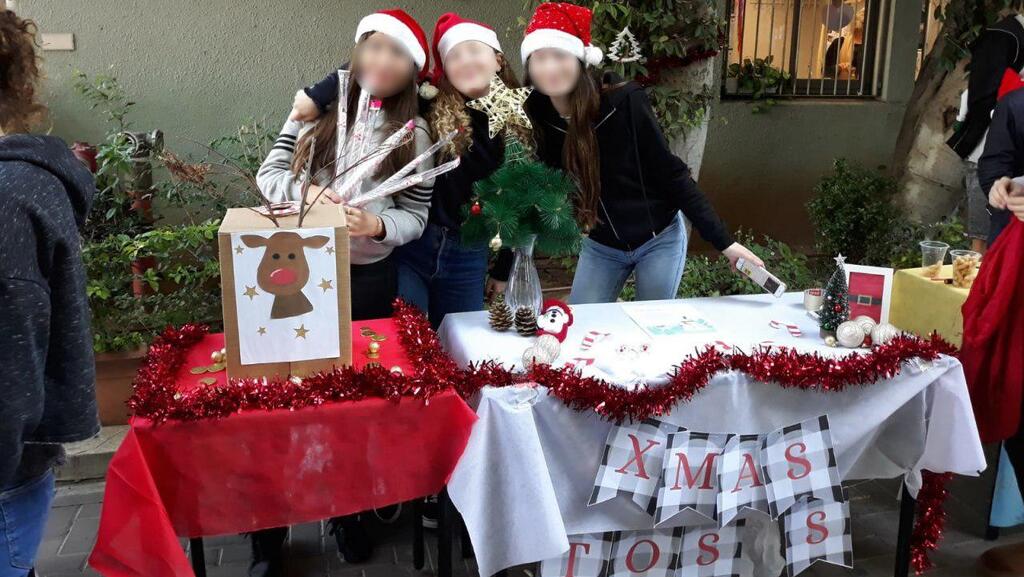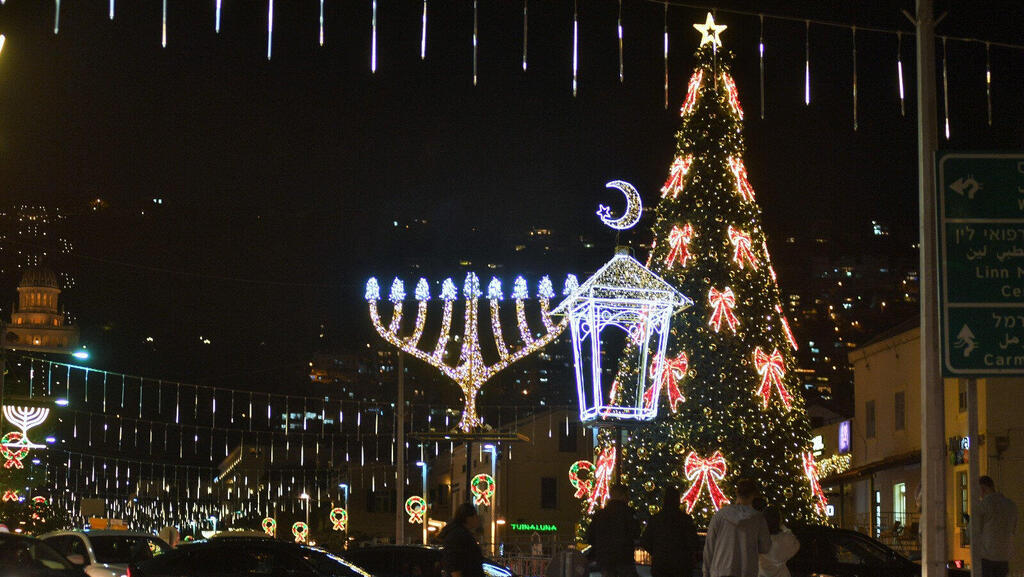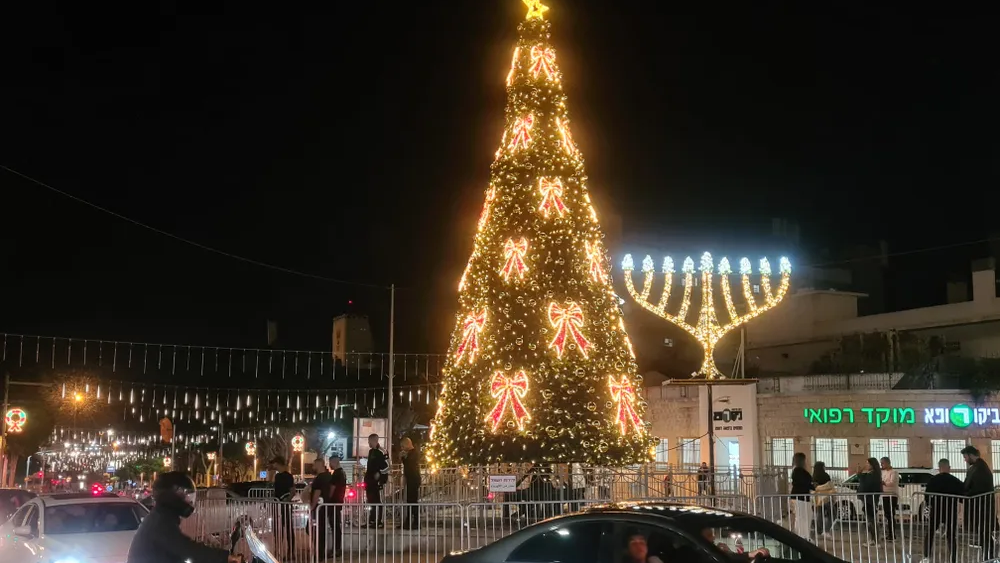Over the past few weeks, the streets of Tel Aviv have been decorated not only with festive lights in honor the winter holidays, but also with banners put up by the municipality, promoting the so-called "Hanukkah-Christmas" parties.
This phenomenon has also broken through the secular bubble of Tel Aviv. Now, it's not uncommon for an Israeli workplace to put a Christmas Tree, or incorporate a game of Secret Santa, while lighting up the Hanukkiah and indulging on Hanukkah doughnuts (sufganiyot).
3 View gallery


Christmas celebration at an Israeli school
(Elad Zadikov, Member of the Herzliya Municipality Council)
Meanwhile, many local stores are even selling Santa Claus hats and tree ornaments on racks next to menorahs and dreidels.
This is a problem!
In response to the criticism, the Tel Aviv Municipality responded, saying it is merely promoting pluralism - belief that there should be diverse and competing centers of power in society.
Pluralism is encouraging freedom of religion and enabling Christians to celebrate Christmas in Israel - in Jaffa, Haifa, Jerusalem, and other mixed Arab-Christian municipalities. That, indeed, is our duty as a democratic state.
But, the leap from this to actively combining the celebrations of Hanukkah and Christmas as if it is one holiday - is a step too far. This is not pluralism, it is obscuring the national identity.
3 View gallery


A Christmas tree next to a Hanukkah candlestick in Haifa, Israel
(Photo: Reuven Cohen)
Not merging the two holidays is not the same as banning Christmas altogether. Furthermore, the Christian holiday may have become a modern global sensation, but it doesn't make it ours. The inability to see the difference between our identity and one we've imported from the West, poses a serious threat to our culture.
Among us are citizens that want to freely celebrate Christmas, and it is their right to do so. However, we ask of you - do not turn it into our holiday. Hanukkah is not just any "Festival of Lights," it's a holiday which carries a lot of baggage, with historical, cultural, moral, and religious context. This baggage makes Hanukkah OUR holiday. It is what makes us special and differentiates us from other nations and religions, it's who we are.
Just like no child thinks of comparing his parents to other parents, Jews should not have to compare between Hanukkah and Christmas, and put in a position where they have to decide which is better.
3 View gallery


A Christmas tree next to a Hanukkah candlestick in Haifa, Israel
(Photo: Jérémie Elfassy)
Our parents, like our holidays, are part of our identities, our stories, and of who we are as people. Even if sometimes we go to a friend's house, and for those several hours we are in a household with different parents who offer a different experience - our parents stay ours. We can love and respect them, but they'll never be on the same level as our parents, and we'll never have to compare between the two.
It seems that some of us have crossed the line between pluralism and losing our identity. Tolerance is an important principle, no doubt, but we cannot let it erase who we are.

